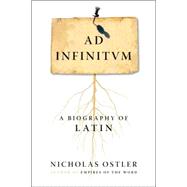
| Praefatio | p. xi |
| A Latin World | |
| Ad infinitum-An Empire Lived in Latin | p. 3 |
| Fons et origo-Latin's Kin | p. 21 |
| Sub rosa-Latin's Etruscan Stepmother | p. 30 |
| Cui bono?-Rome's Winning Ways | p. 46 |
| Excelsior-Looking Up to Greek | p. 58 |
| Felix coniunctio-A Partnership of Paragons | p. 83 |
| Latin Recruits | |
| Urbi et orbi-Taking Over the Church | p. 107 |
| Vox populi vox dei-Latin as the Bond of Unity | p. 116 |
| Dies irae-Staying On | p. 128 |
| Ultra vires-Beyond the Limits of Empire | p. 150 |
| Worlds Built on Latin | |
| Lapsus linguae-Incurable Romantics: Fractured Latin | p. 159 |
| Amor vincit omnia-Latin Lovers | p. 177 |
| Litterae humaniores-The Fruits of a Latin Education | p. 190 |
| Ex oriente lux-Sources of Higher Learning | p. 207 |
| Latin in a Vernacular World | |
| Alter ego-Humanism and the Return of the Classics | p. 233 |
| Deus ex machina-Printing and the Profusion of Grammars | p. 250 |
| Novus orbis-Latin America | p. 260 |
| Decus et tutamen-Last Redoubts | p. 278 |
| Eheu fugaces-Latin's Decline | p. 292 |
| Sub specie aeternitatis-Latin Today | p. 302 |
| Notes on the Latin Tags in Chapter Headings | p. 321 |
| Etruscan Borrowings in Latin | p. 323 |
| Effects of Sound Changes on Latin Nouns and Verbs | p. 327 |
| Notes | p. 331 |
| Bibliography | p. 359 |
| Index | p. 369 |
| Table of Contents provided by Ingram. All Rights Reserved. |
The New copy of this book will include any supplemental materials advertised. Please check the title of the book to determine if it should include any access cards, study guides, lab manuals, CDs, etc.
The Used, Rental and eBook copies of this book are not guaranteed to include any supplemental materials. Typically, only the book itself is included. This is true even if the title states it includes any access cards, study guides, lab manuals, CDs, etc.